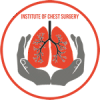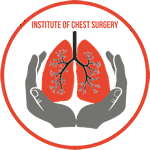Thymoma is a rare type of tumor originating in the thymus gland, located in the upper chest behind the breastbone. This article aims to provide a comprehensive overview of thymoma, covering its symptoms, treatment options, coping strategies, the importance of early detection, and raising awareness about this uncommon condition. As a lung surgeon with expertise in thoracic conditions, Dr. Mohan Venkatesh Pulle can offer valuable insights and personalized care to individuals affected by thymoma.
1. The Importance of the Thymus Gland
The thymus gland plays a crucial role in the development and maturation of T-lymphocytes, essential components of the immune system. While most active during childhood and adolescence, the thymus gradually shrinks with age. In some cases, thymomas may arise from this gland, leading to a range of symptoms that can vary depending on the tumor’s size, location, and invasiveness.
2. Common Symptoms of Thymoma
Thymoma can manifest with various symptoms, which may include:
- Chest Pain and Tightness: Patients may experience persistent, dull chest pain or discomfort.
- Persistent Cough: Thymoma can cause a lingering, unexplained cough, with or without mucus production.
- Breathing Difficulties: As the tumor grows, it may exert pressure on nearby structures, resulting in shortness of breath, especially during physical activities.
- Muscle Weakness and Fatigue: Thymoma can lead to generalized muscle weakness and fatigue, impacting daily activities.
- Unintended Weight Loss: Unexplained weight loss may occur due to a combination of factors, including reduced appetite and the body’s response to the tumor.
- Changes in Voice: Thymomas located near the recurrent laryngeal nerve can cause hoarseness or voice changes.
- Difficulty Swallowing: Thymomas can compress the esophagus, leading to difficulty in swallowing.
- Myasthenia Gravis: Thymoma is often associated with myasthenia gravis, an autoimmune neuromuscular disorder that causes muscle weakness.
3. When to Seek Medical Attention
If any of the aforementioned symptoms persist or worsen over time, it is crucial to consult a healthcare professional promptly. Early detection of thymoma can significantly impact treatment outcomes and enhance the quality of life for patients.
4. Diagnosis and Treatment
Diagnosing thymoma involves a combination of medical history review, physical examination, imaging tests (such as chest X-rays, CT scans, or MRI), and sometimes a biopsy of the tumor. Once diagnosed, treatment plans are tailored to the individual’s specific condition.
a. Surgery
For localized and resectable early-stage thymomas, surgical removal of the tumor (thymectomy) is the primary treatment.
b. Radiation Therapy
Radiation therapy may be used before or after surgery, particularly for more advanced thymomas or cases where complete resection is not feasible.
c. Chemotherapy
In some cases, chemotherapy may be used to shrink the tumor before surgery or to treat thymomas that cannot be removed surgically.
d. Targeted Therapy and Immunotherapy
For recurrent or advanced thymomas, targeted therapy and immunotherapy options may be considered to inhibit tumor growth and enhance the body’s immune response against cancer cells.
5. Coping with Thymoma
Receiving a thymoma diagnosis can be overwhelming for patients and their families. Coping with the emotional and physical challenges that come with the condition is crucial for overall well-being.
a. Support Network
Building a strong support network of friends, family, and support groups can provide comfort and encouragement throughout the journey.
b. Maintaining a Healthy Lifestyle
Adopting a healthy lifestyle can help manage the symptoms of thymoma and improve overall health.
c. Mental Health Care
Dealing with a serious medical condition can take a toll on mental health. Seeking professional counseling or therapy can be instrumental in managing stress, anxiety, and depression.
6. The Importance of Early Detection
Early detection of thymoma is crucial for more effective treatment outcomes. Regular health check-ups and awareness of potential symptoms can aid in catching the condition at an earlier stage.
7. Research and Advancements
Ongoing research and advancements in medical science continue to improve our understanding of thymoma and its treatment options. Participation in clinical trials can contribute to further developments in managing the condition and improving patient outcomes.
8. Raising Awareness
Given the relative rarity of thymoma, raising awareness about the condition is essential. Educating the public, healthcare professionals, and policymakers can lead to improved early detection, accurate diagnosis, and better access to quality care for patients.
Conclusion
Thymoma, a rare tumor originating from the thymus gland, can present with a variety of symptoms that affect an individual’s respiratory health and overall well-being. Early detection and prompt medical attention are vital for better treatment outcomes and improved quality of life for patients.
If you or someone you know experiences any concerning symptoms, such as chest pain, persistent cough, breathing difficulties, or unexplained weight loss, consult a healthcare professional promptly. Dr. Mohan Venkatesh Pulle, a renowned lung surgeon, can provide expert guidance and personalized care to address thymoma and related conditions.
By fostering understanding and support for those affected by this rare condition and promoting ongoing research efforts, we can work together to improve the lives of individuals facing thymoma.







